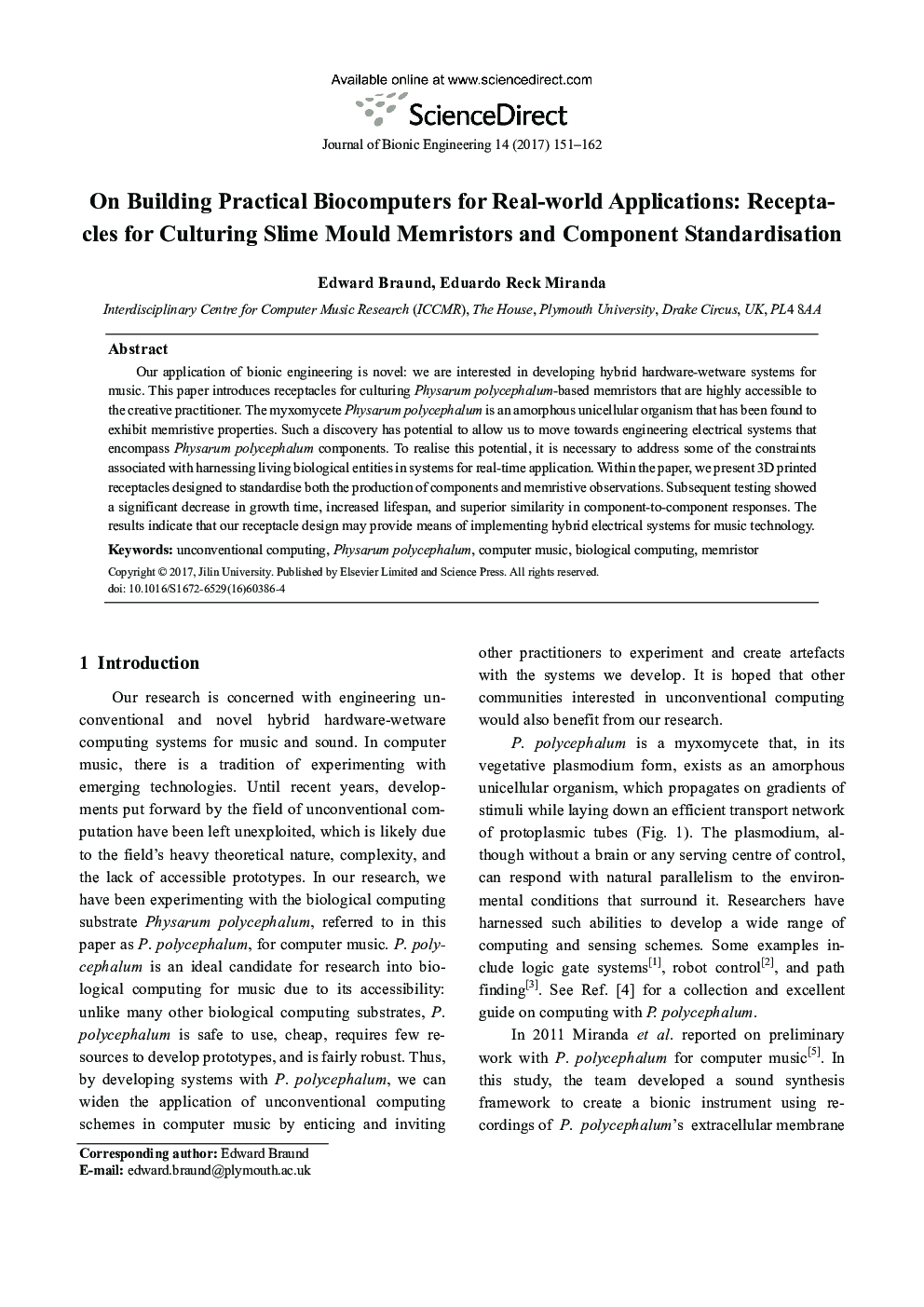| Article ID | Journal | Published Year | Pages | File Type |
|---|---|---|---|---|
| 7216510 | Journal of Bionic Engineering | 2017 | 12 Pages |
Abstract
Our application of bionic engineering is novel: we are interested in developing hybrid hardware-wetware systems for music. This paper introduces receptacles for culturing Physarum polycephalum-based memristors that are highly accessible to the creative practitioner. The myxomycete Physarum polycephalum is an amorphous unicellular organism that has been found to exhibit memristive properties. Such a discovery has potential to allow us to move towards engineering electrical systems that encompass Physarum polycephalum components. To realise this potential, it is necessary to address some of the constraints associated with harnessing living biological entities in systems for real-time application. Within the paper, we present 3D printed receptacles designed to standardise both the production of components and memristive observations. Subsequent testing showed a significant decrease in growth time, increased lifespan, and superior similarity in component-to-component responses. The results indicate that our receptacle design may provide means of implementing hybrid electrical systems for music technology.
Related Topics
Physical Sciences and Engineering
Engineering
Biomedical Engineering
Authors
Edward Braund, Eduardo Reck Miranda,
